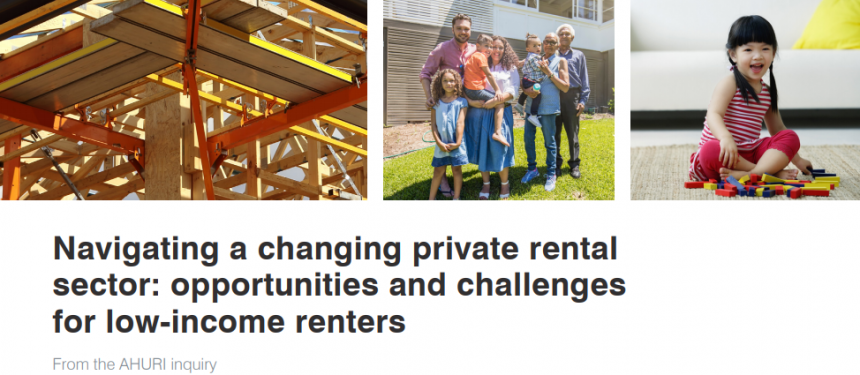International students are increasingly looking towards informal and precarious accommodation arrangements, due to tougher competition within the formal private rental sector, according to a new report. However, work is needed to educate students and create flexible and adaptive safeguards.
News and business analysis for Professionals in International Education
Have some pie!
Aus: accommodation report sparks calls for more support
 Informal accommodation pathways are filling a needs gap, but leave international students vulnerable. Photo: AHURI
Informal accommodation pathways are filling a needs gap, but leave international students vulnerable. Photo: AHURI The Australian Housing and Urban Research Institute’s Navigating a changing private rental sector report, which looked at the renting habits of Australian low-income earners, found that many are looking to find their own solutions due to a critical lack of supply at the low end of the cost spectrum.
In response to the report, students services trade body ISANA called for new subsidised accommodation for all arriving international students, for the first six months of their stay.
“The more you regulate, the more it will go into a black market”
“Students who were accessing one-bedroom studio apartments were having to pay $300 a week; things that just weren’t affordable,” said the report’s co-author, Sharon Parkinson.
“What we’ve found is the informal rental sector, while we used to consider it as a fairly marginal market for housing the quite vulnerable, is disrupting at that low end and there are multiple channels into it.”
Of the channels, the report identified four subpathways:
- ‘time-limited niche apartment pathway’ of purpose-built accommodation;
- ‘collaborative consumption pathway’ of finding others through social media;
- ‘self-managed dwelling pathway’ where renters rent from private landlords; and
- ‘rogue pathway of last resort’, associated with unregistered boarding houses and rooms
Parkinson, who is also a senior research fellow at Swinburne University, added that although informal rental pathways were not new – many people in the past found accommodation through community noticeboards – the number and pathways were having a profound impact.
“Providers could offer subsided accommodation to all newly arrived international students”
“We are seeing the self-organising around shared living, and that’s always been the case, there’s always been sharing, but as the demand increases, that takes on a different form,” she said, adding that many international students were choosing to bypass real estate agents.
Parkinson said this left many students unprotected or unaware of the protections afforded to them by a state’s private rental regulator. Smart legislation that is adaptive and flexible to online platforms needs to be developed, she added.
“We need to be very careful about regulating the informal economy because it’s actually providing an essential point of access for people,” she said.
“The more you regulate that, the more it will go into a black market and hidden, so there needs to be transparency around the pathways and the way that people are accessing housing.”
Bronwyn Gilson, president of national student services body ISANA, said there was a need for more acknowledgement of the reasons behind international students choosing an informal rental pathway.
As well as seeking lower cost, she said many newly arrived students lacked the rental references needed as part of a formal real estate application process, while others wanted better flexibility without paying a fee to break their lease.
“Providers could offer subsided, safe, and appropriate accommodation to all newly arrived international students for a period of six months,” she said.
“During this time the students can be made aware of their rights, safe locations to live, find friends to move into share accommodation with, and have a general awareness of the costs and travelling distance when selecting new accommodation.”
Parkison told The PIE News that for many, informal rental arrangements had a positive outcome, but said the formal market left students vulnerable to scams and exploitation, particularly within the unregistered boarding and private room pathway.
“The informal renting sector is disrupting at the low end”
“You might have ten people in a small unit, they don’t know how much others are paying in rent, there’s no safety on the door,” she said.
Increasingly, Parkinson said, international students and other low-income learners were becoming more competent in identifying dodgy accommodation options but said more assistance was needed.
“It shouldn’t really rest on people to have to carry that alone.”
Student accommodation is featured in more detail in the next issue of The PIE Review.
Still looking? Find by category:



Timely and relevant article, thank you. Just one thing: ISANA is neither a “trade body” nor a “student services body.” ISANA is a Professional Association established in 1989 to represent people working within international student services, support and other agencies.